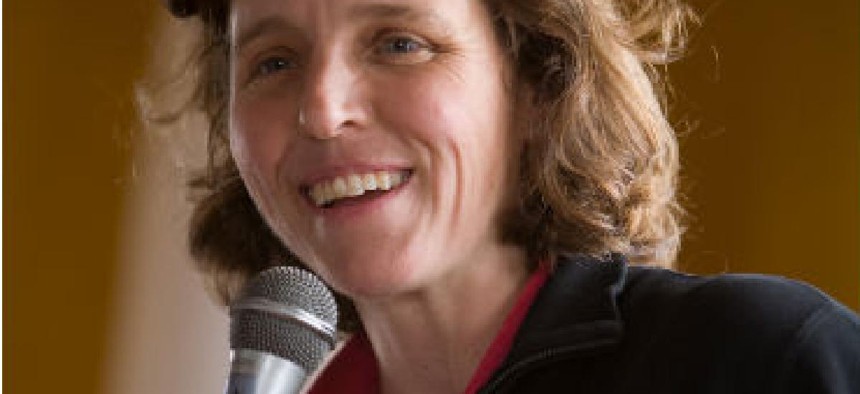LGBTQ techies take over the White House

Diversity stood at center stage as programmers tackled problems ranging from minority tech hiring to criminal justice reform.

U.S. CTO Megan Smith called for more techies at the "principal table."
The LGBTQ community was front-and-center, but the conversation at the Aug. 10 White House LGBTQ Tech and Innovation summit touched on diversity of all stripes, from sexual to racial to professional background.
“All issues are LGTBQ issues, even if they don’t seem obvious,” said Aditi Hardikar, the White House’s official ambassador to both the Asian-American and LGBTQ communities.
At the summit, participants were divided into teams to brainstorm tech-driven solutions to four broad challenge areas: economic inclusion, criminal justice reform, systems inclusion and climate.
The plan, organizers said, was for teams to start at the summit, continue developing ideas over the next three months and eventually present their work to White House representatives via Google Hangouts.
Many participants said just getting in the door, to tech companies or government jobs, was a major barrier.
But for every summit participant looking for work, there seemed to be a representative from a major company not just offering jobs, but actively seeking applicants who were female, LGBTQ and/or racial minorities. Ernst and Young, Intel, Akamai, HP, Accenture, Verizon, Pixar, Google and IBM were among the firms represented.
“Bring more women into tech,” pleaded SquareSpace supervisor Jenny Campos. “It’s kind of lonely being the only woman on my team.”
As the introduced themselves, each participant delivered an offer – what they could do for others – and an ask.
Offers varied from networking opportunities to the promise of Filipino food, while asks ran the gamut from job requests to a boycott of the upcoming Stonewall film because, one participant said, the movie appears to be “eras[ing] trans from our equality movement.”
“My ask is that everyone teach a black woman how to code,” another participant said.
U.S. Chief Technology Officer Megan Smith, former Google executive-turned-“most powerful lesbian in the White House,” lauded the potential for creative thinking that fresh blood would bring the federal government.
She noted the professional homogeneity of government higher-ups, most of whom have strong legal backgrounds.
With very few techies at the “principal table,” tech issues can become an afterthought, Smith said. “They often sort of throw that stuff over the fence instead of working collaboratively,” she noted, calling on more techies to enter government to help focus federal attention on technology.
She shared promising strategies, from boosting venture capital funding for women- and minority-owned startups to putting a Fab Lab in every congressional district.
Smith’s vision: “Government, instead of being parental, can really be the stage on which things are done.”
She also called on participants, many of whom hailed from San Francisco and New York, to bring startup spirit and innovation to Washington.
“If we can make Amazon and Twitter,” Smith said, “why can’t we make great websites for the IRS?”





